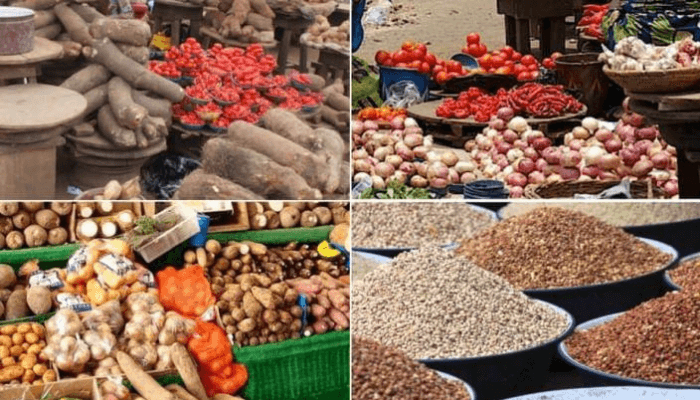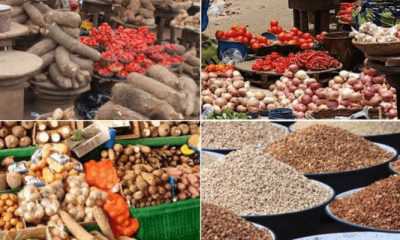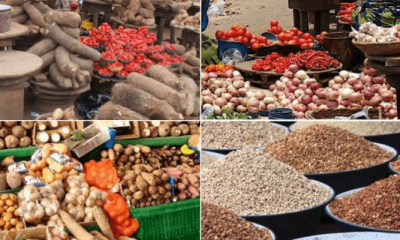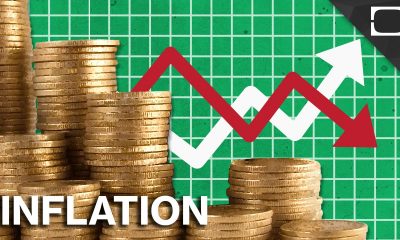Business
Hardship Bites Harder As Price Of Rice, Garri, Yam Surge By Over 100 Percent Yearly

The price of staple food items in Nigeria, including rice, garri, yam, and beans, has soared by more than 100 per cent annually, placing significant financial strain on households across the nation.
Naija News reports that the latest Selected Food Price Watch for March 2024, released by the National Bureau of Statistics (NBS), captures this sharp rise in food prices amidst the escalating inflation rates.
According to the NBS report, the average price of 1kg of loosely sold local rice stood at N1,340.74 in March 2024, marking a dramatic 152.93 per cent increase from the ₦530.08 recorded in March 2023.
The report also noted a 9.63 percent month-on-month increase from ₦1,222.97 in February 2024.
Similarly, the price of 1kg of white Carrie rose by 112.34 per cent year-on-year from ₦353.16 in March 2023 to ₦749.89 in March 2024, with a 3.66 per cent rise on a month-on-month basis.
The price of 1kg of yam tuber also surged by 141.25 per cent year-on-year, from ₦443.02 to ₦1,068.78, and increased by 5.87 per cent from February 2024 to March 2024.
The state-by-state analysis provided further insights into the geographical disparities in food prices.
Niger State reported the highest average price for 1kg of rice at ₦1,699.98, while the lowest was in Benue State at ₦985.83.
Ondo State saw the highest price for 1kg of brown beans sold loosely at ₦1,596.68, with Sokoto having the lowest at ₦745.50. For garri, Ogun State recorded the highest price at ₦1,021.13 per kg, and Benue reported the lowest at ₦490.55.
Edo State had the highest price for yam at ₦1,695.13 per kg, whereas Katsina recorded the lowest at ₦723.39.
These soaring prices are occurring against the backdrop of headline inflation and food inflation rates of 33.20 percent and 40.01 per cent respectively as of March 2024, underscoring the severe economic pressures facing Nigerians.
The surge in food prices not only reflects the volatility in the market but also raises concerns about food security and the affordability of basic nutrition for millions of Nigerians.
Economic analysts attribute this price hike due to a combination of factors, including fluctuating supply chains, currency depreciation, and the lingering effects of security challenges in food-producing regions.
The government’s efforts to stabilize the situation have yet to yield visible results in curbing the rising cost of living, leaving many citizens grappling with the increasing financial burden of basic sustenance.












